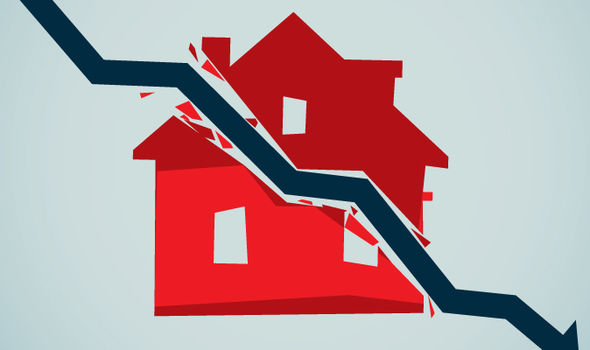Has The Property Crash Already Started?
The theory underlying the flurry of quantitative easing, government takeovers, stimulus cheques, and government welfare programmes that followed the 2008 and 2020 market crashes was that the Fed, in collaboration with Congress and the White House, needed to prop up the economy in order to prevent it from collapsing totally.
They can’t kick the proverbial can down the road any longer. High global inflation has forced quantitative tightening (really?) and regular interest hikes across most Central Banks. The Fed’s major instrument for achieving its objectives was to keep interest rates at zero for years on end. From 1980 to 2000, the Federal Reserve’s federal funds rate — the main driver of interest rates throughout the economy — seldom fell below 4%, and interest rates were often 5% or more.
From 2009 to 2016 interest rates, on the other hand, were regularly lower than 1%. The Fed started quickly raising rates in 2017, the first year of Donald Trump’s administration, but rates only briefly exceeded 2% in 2018 and 2019, when the Fed lowered rates to near-zero as part of its strategy to address the consequences of the Covid-19 lockdowns.
Because debt is cheap, it is simpler for governments to spend more money than they receive in when interest rates are maintained low. Banks and other financial organisations are also more inclined to lend money for high-priced items. Because a house is frequently the largest purchase a person will make in his or her lifetime, and the great majority of buyers depend on large mortgages to complete the purchase, the real estate market is highly sensitive to rate fluctuations.
People can afford to take on more debt when interest rates are maintained extraordinarily low since the monthly payments are less expensive. As a consequence, vendors’ prices have risen.
One of the reasons the real estate market plummeted so violently in 2008 was because of this. Following the terrorist events of September 11, 2001, the Federal Reserve maintained interest rates low, encouraging consumers to take on more debt than normal, particularly in the real estate market.
Rather than learning from the 2008 financial crisis, the Fed doubled down on its failing policy during the Covid-19 reaction and then tripled down. Lower interest rates have allowed Congress and the White House to extend government programmes without having to rely on foreign governments to fund the debt.
In addition, the 12-month house sales price increases for the second, third, and fourth quarters of 2021 were all over 17%, the largest three-quarter gain since at least 1963, the oldest date in the Fed’s statistics made public online.
Simply put, Americans have never seen property prices rise as quickly as they have currently done for such a long time. And every time they’ve reached the levels we’re seeing now in the past — in the 1970s, the late 1980s, and the early to mid-2000s — there’s been a big real estate or stock market collapse (or both). With the exception of a few unusual situations when home values rose rapidly following a crisis, there seem to be no exceptions.
It’s tough to estimate the extent of a market correction, but if the 2008 collapse is any indication of what’s to come, the present real estate bubble might wind up being the greatest real estate crash in history if it bursts soon, as all bubbles eventually do.
So, the big question is – has the bubble already popped? – New home sales in the US sank 16.6%, a new 2-year low and mortgage applications are at a 22-year low in the week ending 3rd June 2022.
A key metric of the health of the American economy is the housing market. People are more likely to purchase houses, renovate their present homes, or buy bigger houses when the economy is robust and people are optimistic about the future. When people are more worried about the economy, new house building, renovation, median prices, and housing sales are all depressed. Because the cost of property and housing has constantly grown throughout time, real estate has long been regarded a solid means to enhance personal wealth. However, the housing bubble of 2007/8, which resulted in a sharp drop in home values, was the fundamental cause of the Great Recession in the United States, damaging the credit of millions of individuals who were suddenly underwater on their mortgages and having a long-term effects on the housing market.
World Bank President David Malpass said: “The war in Ukraine, lockdowns in China, supply-chain disruptions, and the risk of stagflation are hammering growth. For many countries, a recession will be hard to avoid.”
The property market would be no outlier from such an economic event, as property buyers in the 2008 recession will remember well.
In 2008, desperate sellers had to slash thousands off their homes in order to sell, with some sellers dropping their prices as low as 40 percent of the value of the property two years before the financial crash. But could the same happen to the property market now?”
So, with the recent crash of global equity markets and cryptocurrencies, it looks like we cannot rely on bricks and mortar to be as safe as houses anymore!
online sources: tradingeconomics.com, noradarealestate.com, finance.yahoo.com All opinions and views expressed or suggested by the Digital Zeitgeist are not necessarily the same opinions and views held by or suggested by GPM-Invest plus any and all partners, affiliates, parties, or third parties of GPM-Invest. Any type of media distributed by GPM-Invest IS NOT financial advice. Please seek advice from a professional financial advisor.

